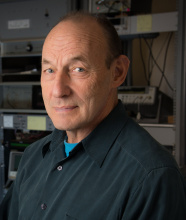Position Navigation and Timing (PNT) Vulnerability: Challenges and Solutions
Position Navigation and Timing (PNT) Vulnerability: Challenges and Solutions
Abstract
Position Navigation and Timing (PNT) have become ubiquitous, almost entirely based on Global Navigation Satellite Systems (GNSS) such as the US Global Positioning System (GPS). In all of these systems, the "P" and "N" systems are based on the "T", timing. Yet these systems are extremely vulnerable to intentional and unintentional interference. The US Department of Homeland Security (DHS) is releasing a Resilient PNT Conformance Framework, which defines four levels of resilience. But it does not say how a system can be shown to conform to any of these levels.
This talk has two focuses: how timing can be made more resilient with ensembling, and how one might begin to test a system to determine which level of resilience that system conforms to. Creating an ensemble with clocks has a number of advantages, though there is a cost as well. A clock as a timing source for a system can receive the support of the other clocks if it is a member of an ensemble, where it is continuously compared to the other clocks in the ensemble. This can increase the stability and reliability of any one clock. The cost, however, is there must be a method of continuous clock comparison, which has more strict requirements than those of general data networking. Ensembling also relates to PNT resilience, as a clock in an ensemble can detect spoofing more easily as well as obtain the time from the other clocks in the ensemble if the GNSS receiver is jammed, preventing access to time from GNSS.
We discuss the relationship and the status of these two issues: clock ensembling and PNT resilience. We then outline a number of interesting related research areas.
Bio
Dr. Weiss worked at the NIST Time and Frequency Division from 1979 through 2013. He has since been a consultant on precision timing systems for NIST and for various companies. He received several awards during his tenure at NIST. Also, he led the NIST program to support the GPS program office in developing their clocks and timing systems. In 1992, Dr. Weiss founded and has continued to lead the Workshop on Synchronization and Timing Systems (WSTS), now the premier conference on timing and synchronization in industry. In April, 2019, Dr. Weiss was awarded the Marcel Ecabert Lifetime Achievement Award “For his key contributions to remote clock comparisons, to time scale algorithm development and to accurate synchronization for science and industry.”


